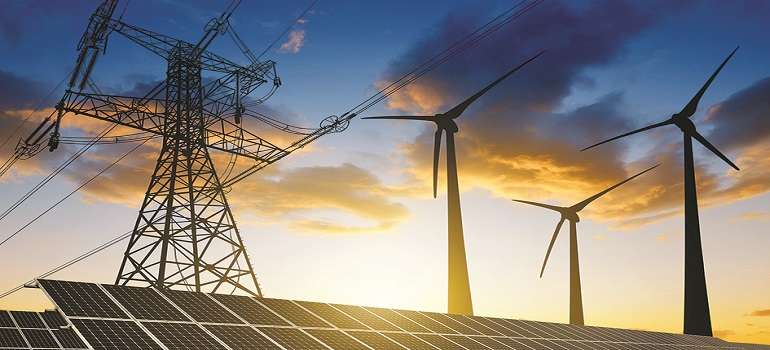
JMK Research & Analytics in its new research said that land procurement is the biggest hurdle for solar and wind projects In India.
the land is a state subject, which means various state
government agencies, including- revenue department, panchayat, state nodal
agencies, among others, are involved in giving approvals to procure/ lease the
land. The involvement of so many entities makes the entire process highly
cumbersome and time-consuming. As per industry sources, in general, it takes
around 6-9 months to procure land for setting up solar/ wind projects. In
states like Karnataka, this time can even stretch to 18-24 months. As most of
the central and state tenders are sanctioned around 12-18 months for project
commissioning, around 60%-70% of the time goes in approvals and procurement.
Although the introduction of single window clearance mechanism by some states
has greatly improved the process of granting approvals and permissions for land
acquisition, there are still many issues that are leading to project delays.
Some of them are:
Non-agricultural (NA) conversion of land-
- Most state governments allow the purchase and use of agriculture land by changing the deemed land use to NA category.
- Currently, Madhya Pradesh, Punjab, and Rajasthan allow conversion of land use to deemed NA without charging any fee. Whereas, the states of Andhra Pradesh and Telangana charge for these conversions. In other states, separate permissions from the District Commissioner (DC) / Town Planning department/ Revenue department are required for conversion to NA.
Delay in government land allotment/ registration under Solar Park scheme for ISTS projects
- In the past, the Government had rushed to auction projects in solar parks even before land acquisition formalities were completed. This led to significant problems and delays for developers as the required infrastructure was not ready for them to start construction even after project allotment. Because of this, in the Pavagada, Charanka, Bhadla, and Kadapa solar parks, bid submission deadlines for tenders have reportedly been extended repeatedly.
- Under the current scenario, SECI can give an extension for only 3 months. However, in reality, for most solar parks the delays go beyond 3 months.
Land records still not digitized
- For projects where private land acquisition is
needed, developers face difficulty in tracking the ownership of the land as the
states continue to keep all the related records in paper form.
- It takes several months to finalise the exact land coordinates and identify the rightful owners to undertake commercial negotiations.
No formal policy for land allocation by the Governments of certain key states
- At 85,000 sq. km, Rajasthan has a maximum wasteland and most of it is dessert/ barren land. Erstwhile, J&K holds second spot with wasteland area of about 75,000 sq km, which is mostly hilly area, or without grid connectivity.
- Karnataka and J&K are yet to bring in formal policies for land allocation. Recently, J&K, Leh, and Ladakh are now given the status of Union territories that are governed by central government. Therefore, to leverage the abundant land availability in these regions central govt should make plans to capitalize on the huge opportunity for solar and wind in these regions through a formal land allotment policy.
- Of all the key states where maximum wasteland is available, only four states- Rajasthan, Madhya Pradesh, Maharashtra, and Gujarat have framed adequate policies for government land allocation for renewable projects. However, even in these states, for example in Gujarat, major wind projects allotted under central government schemes are getting delayed as state government is reluctant to provide land for central projects.
Exemption on Stamp duty for RE projects
- While Punjab, Haryana, and Uttar Pradesh give 100% exemption from stamp duty for land registration for RE projects, Madhya Pradesh gives 50% exemption. Most other states have no such exemption provision yet.
As land is a state subject, there is a need for better coordination between state and central government agencies while evaluating and announcing tenders said the research firm.
The expected due dates should match the reality on the ground. Digitization of land records is the key to streamline and expedite the land allotment process.
Thereby reducing any chance of stalling of projects due to legal hurdles. Lastly, to speed up the process of approvals and permissions, the number of agencies involved should be minimized or better coordination among these agencies has to be established.

